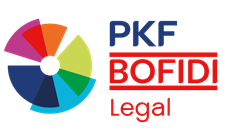Shaping the M&A Landscape in 2025: Key Trends and Insights

Lower interest rates, deregulation under President Trump, and the growing importance of ESG are key forces shaping the M&A landscape in 2025. To explore how these trends, along with technological advancements, are creating both opportunities and challenges, we spoke with Christophe Piette, Founder and Partner at PKF BOFIDI LEGAL. Here’s what he shared.
The Impact of Economic Conditions on M&A Activity
The current economic climate, characterized by declining interest rates, significantly influences M&A activity, in particular in the so-called small and midcap sectors. Lower borrowing costs make leveraged buyouts more attractive, encouraging both strategic and financial buyers to pursue acquisitions.
However, geopolitical and economic uncertainties, such as the war in Ukraine, still require a degree of caution in the market. In addition, we are noticing growing nervousness among production companies, largely due to rising labor costs. This is reflected in the increasing number of inquiries about collective dismissals and related measures. This could also mean that we would see an increase in distressed M&A.
These challenges underline the importance of a stable and predictable business climate, supported by a (tax and legal) framework that enhances competitiveness. For example, maintaining the exemption on capital gains from shares is essential, as it encourages investment and fosters confidence in the market, ultimately promoting economic growth.
Sectoral Growth in M&A Activity
In 2025, we expect a continued consolidation wave in various sectors. The technology sector, in particular, is witnessing a surge as companies rush to capitalize on advancements in AI, cloud computing, and digital transformation. This trend is fueled by a "fear of missing out" (FOMO) effect, with companies eager to stay competitive by acquiring cutting-edge capabilities and market share. Another example is the increased consolidation in various liberal professions, such as accountants, architects, engineers, dentists, etc. This exemplifies how economic conditions and industry-specific trends drive M&A dynamics.
Expected deregulation under President-elect Trump compared to EU regulitis
The re-election of President Trump is anticipated to usher in further deregulation, particularly in industries like technology and healthcare. The European Union on the other hand has significantly increased regulations in several key areas, such as:
- Privacy and Cybersecurity (NIS2 and DORA): The NIS2 Directive strengthens the EU’s framework for cybersecurity, extending its scope to include more sectors such as energy, healthcare, and transport, and imposing higher standards for risk management and incident reporting. Similarly, the Digital Operational Resilience Act (DORA) focuses on financial entities, ensuring they can withstand, respond to, and recover from ICT-related disruptions.
- Other Regulatory Developments:
- Supply Chain Due Diligence: The EU’s Corporate Sustainability Due Diligence Directive (CSDDD) will require companies to identify and address human rights and environmental risks within their supply chains, placing significant responsibility on businesses to manage third-party compliance.
- Product Regulations: The Ecodesign for Sustainable Products Regulation (ESPR) is the cornerstone of the EU Commission’s approach to more environmentally sustainable and circular products. This affects industries ranging from electronics to textiles.
- Digital Services and Markets (DSA/DMA): The Digital Services Act (DSA) and Digital Markets Act (DMA) impose stricter obligations on large online platforms to manage illegal content, ensure data privacy, and avoid anti-competitive practices, reshaping the digital landscape in Europe.
While these measures aim to create a more sustainable, fair, and secure future, they also present challenges for businesses in terms of compliance, resource allocation, and operational adjustments.
The Growing Role of ESG in M&A
In addition to the foregoing, ESG is becoming more and more important: ESG credentials are becoming more attractive targets, as buyers seek to align acquisitions with their sustainability goals. The Corporate Sustainability Reporting Directive (CSRD) is playing a significant role in this shift, mandating stricter ESG disclosures for companies operating in Europe. This trend has notable implications for Belgian SMEs, which now face increased pressure to meet these rigorous standards. At PKF Bofidi and PKF Bofidi Legal, we are heavily focusing on these matters with specialized teams, providing tailored advice to help businesses, including Belgian SMEs, navigate the challenges and opportunities presented by the CSRD and broader ESG considerations.
Drivers of ESG Emphasis
The emphasis on ESG criteria is driven by a combination of buyers, sellers, and regulatory bodies, but also financial institutions. Buyers aim to enhance long-term value and reduce risks, while sellers seek to position themselves as sustainable investments. Regulatory bodies, particularly in Europe, are imposing stricter ESG reporting requirements, further embedding ESG into the M&A framework. Lastly, we note that financial institutions play a pivotal role in driving ESG considerations in a M&A context by using ESG Compliance as a prerequisite for financing the deal. This multifaceted approach ensures that ESG considerations remain central to deal-making in the years to come.
Post-Pandemic Recovery: Lasting Effects of COVID-19 on M&A
The COVID-19 pandemic has left an indelible mark on M&A practices. Companies are now more focused on resilience, with increased attention to supply chain robustness and digital transformation. Remote work capabilities, virtual data rooms, and digital meeting platforms have become integral to M&A processes. These tools enable efficient due diligence, streamlined negotiations, and better communication across geographies. This shift has not only improved operational efficiency but also set new standards for how deals are executed in a highly interconnected and virtual environment.
Future Outlook - Technology and Innovation: The Role of AI in M&A Processes
Artificial intelligence (AI) is revolutionizing the M&A process by enhancing due diligence, valuation, and post-merger integration. AI tools can analyze vast amounts of data to identify risks, uncover synergies, and streamline decision-making. This reduces time and costs while improving accuracy. As AI technologies continue to evolve, their role in M&A is expected to expand, offering new efficiencies and insights.
Trends in Automation and Integration
Automation is increasingly being used for document review, compliance checks, and integration planning. These technologies enable companies to manage complex transactions more efficiently and ensure smoother post-deal integration. The adoption of automation is no longer a luxury but a necessity for staying competitive in the M&A arena.
Post-Merger Integration (PMI)
Post-merger integration often encounters legal challenges, such as employment law disputes, intellectual property conflicts, and regulatory compliance issues. Addressing these obstacles requires thorough pre-merger planning and clear communication during integration. Effective resolution of these issues is essential to realizing the intended synergies of a merger or acquisition.
Essential Skills for M&A Lawyers
To succeed in this evolving landscape, M&A lawyers must cultivate a global mindset and a deep understanding of the specific industry sectors. Proficiency in navigating complex regulatory environments, coupled with strong technological acumen, will be crucial. Additionally, lawyers must excel in multidisciplinary collaboration, thinking beyond their specific expertise. Building on technological advancements and focusing on delivering tangible added value to clients will further distinguish successful M&A professionals. This is why we believe that our integrated M&A solutions at PKF BOFIDI give the best possible solution (both for adviser and clients).



